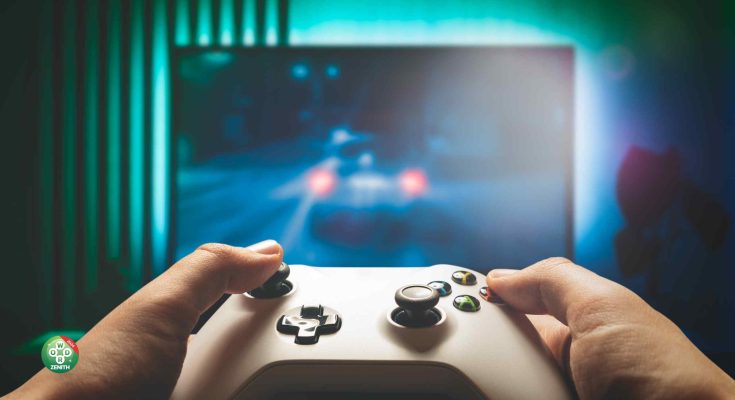Mobile gaming has come a long way since the days of simple Snake or Tetris games on early cell phones. What started as a novelty has evolved into a massive industry, with mobile games generating billions in revenue each year.
But mobile gaming is far more than just entertainment – it has had a profound impact on modern society. From shaping pop culture to advancing technology to boosting mental health, the influence of mobile games now extends well beyond our smartphones.
The Rise of Mobile Gaming
The origins of mobile gaming can be traced back to the 1990s, when cell phones first began to have tiny screens that could display basic graphics. Snake, released in 1997, became an instant classic amongst early cell phone users with its addictive gameplay of maneuvering a snake to eat apples while avoiding walls or its own tail.
From there, primitive mobile games like Brick and Space Impact gained popularity as time wasters for bored cell phone owners.
When Apple launched the App Store in 2008, it sparked a revolution in mobile gaming. Developers now had a centralized marketplace to publish their games, while consumers could easily browse and download games to play on the go.
Advances in smartphone technology like touchscreens, motion sensors, and graphics processors allowed for immersive gameplay experiences far beyond what those pixelated Snake graphics could offer.
The result was an explosion in mobile gaming. In 2020 alone, over 1.2 billion people worldwide played mobile games, generating estimated revenues of $87 billion. Major mobile game releases now rival blockbuster movie openings for buzz and cultural impact.
When Pokémon Go launched in 2016, it created a global frenzy as people explored real world locations to catch Pokémon through their phone cameras. Soccer moms, retirees, and even local police departments joined in on the mobile gaming craze.
Impacting Pop Culture
Mobile games now have a significant influence on mainstream pop culture. Characters like Angry Birds or Talking Tom have become cultural icons, appearing in movies, TV shows, and merchandise around the world. The most popular mobile games spawn everything from toys to clothing to Halloween costumes, permeating modern day pop culture.
In many cases, mobile games have successfully transformed themselves into broader media franchises. Pokémon Go leveraged the globally beloved Pokémon brand into a fresh, innovative mobile experience that appealed to both nostalgic fans and new users.
The Angry Birds Movie took flingable fowl from the smartphone to the silver screen. These examples demonstrate how mobile games can now launch their characters beyond just games into full-fledged entertainment behemoths.
Even traditional celebrities and influencers have jumped on the mobile gaming bandwagon, collaborating with developers or launching their own games.
Pop star Selena Gomez produced a mobile game, Kim Kardashian: Hollywood, that let players navigate fame in Hollywood as Kim’s assistant. Through mobile games, stars outside the gaming industry can now interact with fans in new digital experiences.
Driving Technological Innovation
Mobile gaming has been a catalyst for technological innovation across the smartphone industry. To support rich, real-time 3D graphics and lightning fast multiplayer experiences, mobile hardware has needed rapid advancements.
Mobile games have driven the demand for better displays, processors, and sensors in our smartphones, tablets, and wearable devices.
Developing cutting edge games has also pushed programmers to devise clever software solutions to overcome hardware limitations.
When Pokémon Go overwhelming demand threatened to cripple servers, developers found ways to efficiently offload data processing and traffic to the cloud.
The need for sophisticated physics engines, artificial intelligence, and networking middleware to support complex mobile gameplay has led to innovations that benefit other apps beyond games.
Investment into mobile gaming has been future-focused, ensuring the key technology foundations stay on the leading edge. 5G networking offers lower latency and faster speeds – critical for real-time online gaming.
Virtual and augmented reality experiences on mobile devices have gained momentum, with games a key use case driving hardware development. Mobile gaming has nurtured a technological ecosystem that has allowed smartphones to become amazingly powerful tiny computers.
Fostering Competition and Community
While gaming has always been social, mobile games have strengthened community and fueled competition in fresh ways. Online PvP arenas allow players to compete against others anywhere in the world through quick asynchronous matches.
Leaderboards drive players to keep improving scores and testing skills against one another. Active chat systems let gaming communities bond over shared victories and defeats. Features like gifting, clans, multiplayer raids, and in-game friends lists reinforce social teamwork.
Massive global events hosted in mobile games cultivate community. In 2019, over 7 million concurrent players attended an otherworldly DJ concert inside Fortnite.
Pokémon Go’s annual Safari Zone gatherings enable players from around the world to explore real cities together. These shared mobile gaming experiences connect people through play.
For some, mobile gaming also nurtures interest in broader competitive gaming or esports. Major esports organizations like Tribe Gaming and Cloud9 have launched mobile divisions, recognizing mobile as a gateway into competitive gaming.
Mobile games like Arena of Valor and Clash of Clans are even ESPN broadcasted esports, further cementing mobile’s role in the competitive scene.
Improving Health and Well-being
Perhaps surprisingly, mobile gaming is also positively impacting mental health for players. Hyper-casual games, with their simple and addictive mechanics, can reduce stress during quick play sessions.
Puzzle games help engage different regions of the brain, improving cognition and memory. Pokémon Go demonstrated augmented reality games can encourage people to exercise by tying gameplay to real world physical movement.
Researchers have explored how mobile games can aid in rehabilitation and therapy. Games that require focus, rapid reactions, and complex hand-eye coordination may slow cognitive decline in seniors.
Post-stroke patients are using tablet-based games to promote motor recovery. Games are also being designed to support pain management, behavioral therapy, and other healthcare needs.
While concerns around mobile game addiction persist, the World Health Organization has indicated gaming disorder impacts a very small fraction of gamers. Responsible gameplay in moderation can be an overall mentally positive experience providing relaxation, socialization, and a sense of accomplishments. Mobile games offer broad audiences easily accessible entertainment that can enhance well-being.
Read more: From Snake to AR Wizards: Tracing the Remarkable Evolution of Mobile Gaming
Looking to the Future
Mobile gaming has already come a long way and hints at even greater transformations ahead as technology progresses. Cloud streaming promises AAA console-quality games playable on smartphones through the cloud.
5G networks will enable truly real-time and stable gameplay on the go. Virtual reality headsets coupled with mobile devices will immerse gamers in expansive lifelike worlds. And augmented reality has only scratched the surface of overlaying gameplay onto real environments.
The future of mobile gaming is bright, but its real legacy may be how gaming on smartphones fundamentally shaped everyday life.
Mobile gaming continues to push technology forward, connect communities, and demonstrate how engaging entertainment in bite-sized packages can positively impact mental health and wellness.
While mobiles games offer fun distraction at the doctor’s office or bus stop, their lasting impact spreads far beyond killing just a few idle minutes. Mobile gaming intertwines with modern pop culture, drives innovation, brings people together, and promotes well-being.
And with new advances on the horizon, mobile games are poised to continue transforming entertainment, culture, and society.




